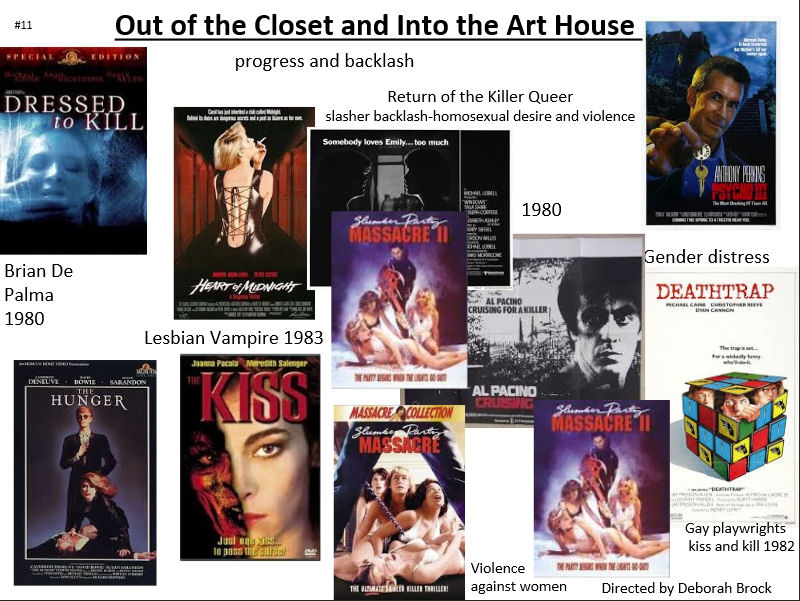
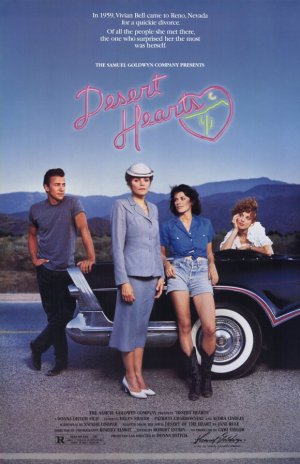
Feminist Film Studies Feminist Film Studies analysis (as the Microsoft Word Document sent to you by e-mail) (as the .pdf document sent to you by e-mail)
Roger Ebert's review

|
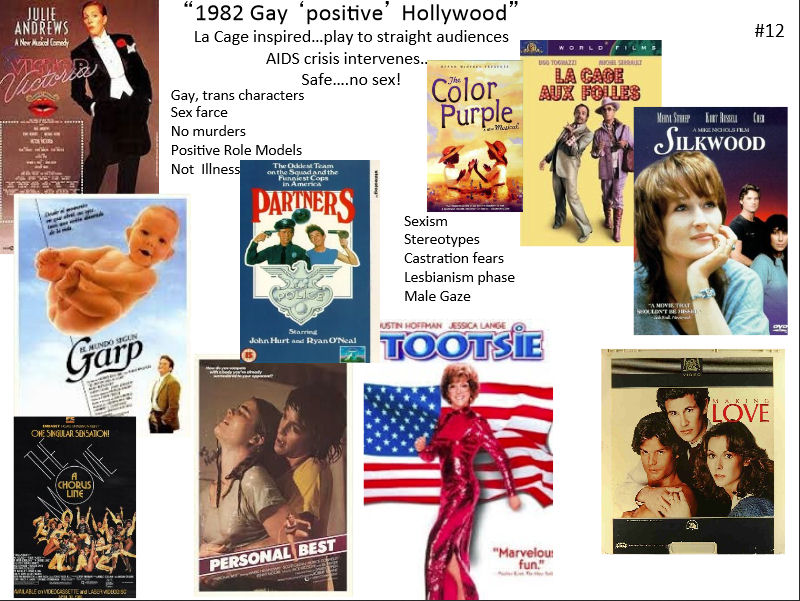
|
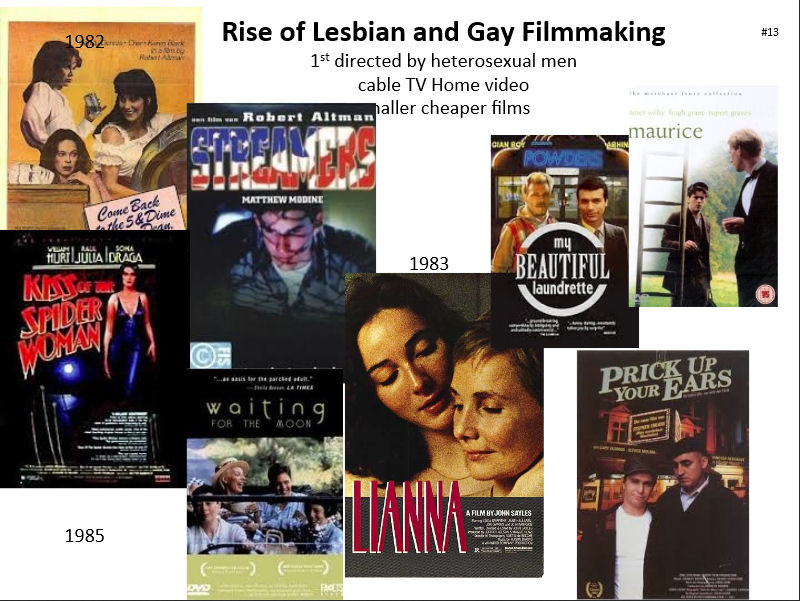
|
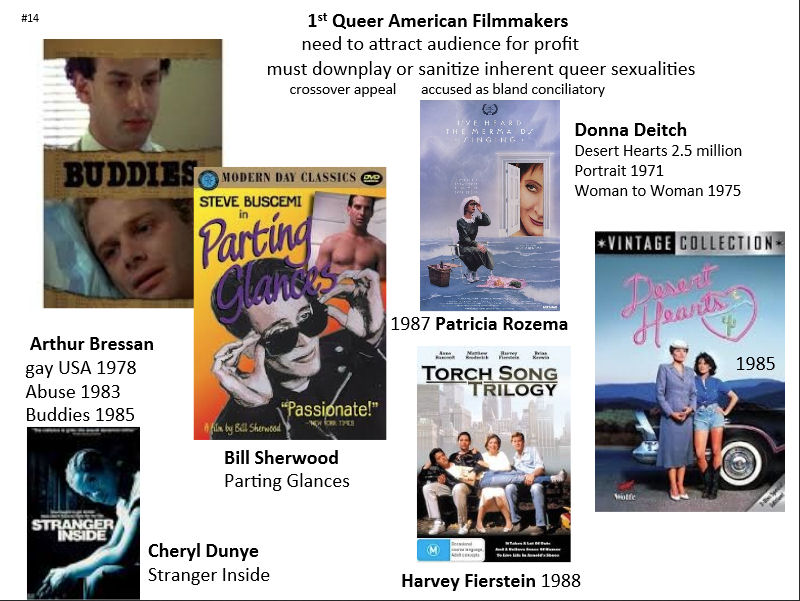
|
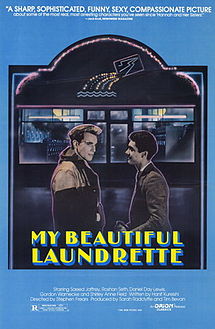
My Beautiful Laundrette (1985)
Description from The Advocate magazine's
The Top 175 Essential Films of All Time for LGBT Viewers:
My Beautiful Laundrette (1985): Combining racism, class issues, and gay love in one sudsy mix sounds like a recipe for heavy-handed treacle, but Stephen Frears's My Beautiful Laundrette is as entertaining as it is culturally resonant. The story of a Pakistani man and a street punk falling in love, challenging the conventions of Thatcher-era London, and classing up a laundromat in the way only gay men can do, My Beautiful Laundrette was immediately met with praise and its screenplay nominated for an Oscar. The film's punk was played by the brilliant Daniel Day-Lewis, while director Frears is still on a roll, recently Oscar-nominated for Philomena. -N.B.
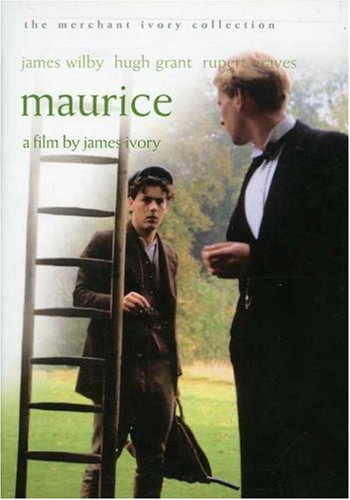
Maurice (1987)
Description from The Advocate magazine's
The Top 175 Essential Films of All Time for LGBT Viewers:
Maurice (1987): Based on E.M. Forster's long-suppressed novel of gay love, the film stars James Wilby, Rupert Graves, and Hugh Grant all at their most adorable. Forster's novel, written in 1914, was published in 1971, after his death, as Forster knew there was controversy in giving the lovers a happy ending. The novel allowed a new openness in literature and biography. The film was the satisfying second shoe to drop. Gay people who had never seen dreamy romantic images of same-sex couples on the big screen swooned over the beautifully art-directed affair between the well-born Maurice and the laborer Scudder. They also swooned at Rupert Graves's callipygian assets. -C.H.
Scott's Comments:
Every gay man I know loves this movie. It is the gay male Desert Hearts.
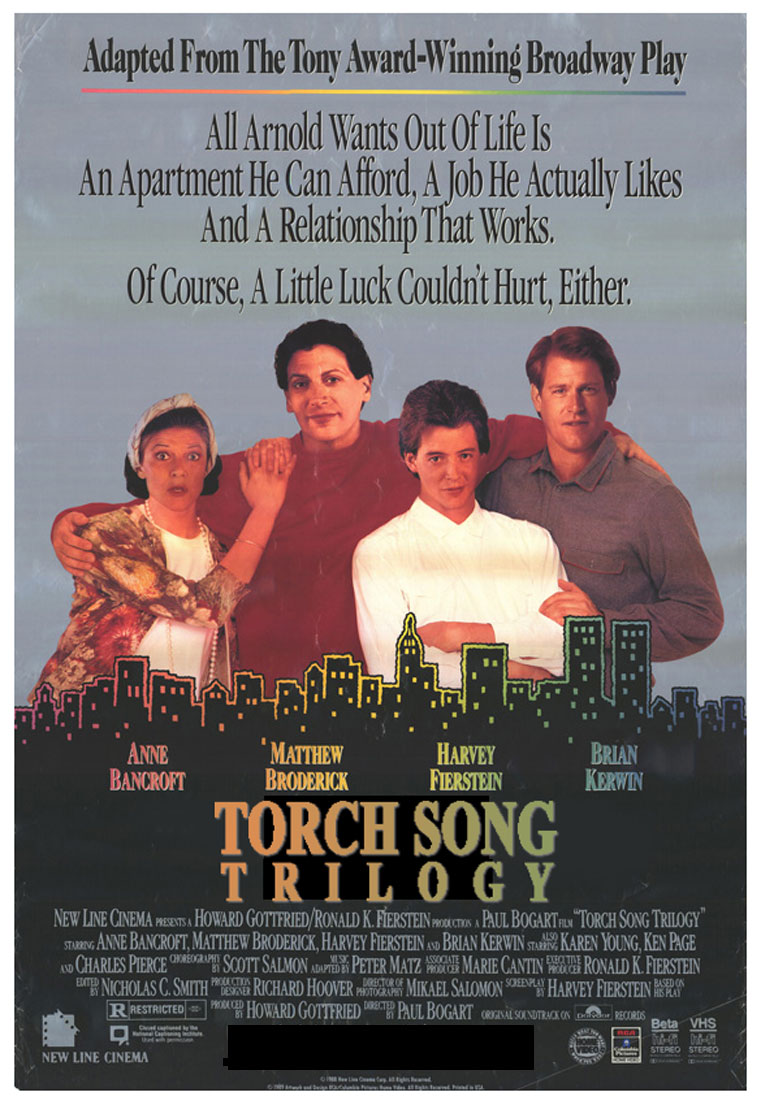
Tourch Song Trilogy (1988)
Description from The Advocate magazine's
The Top 175 Essential Films of All Time for LGBT Viewers:
Torch Song Trilogy (1988): This superlative early gay film was adapted from the three-part play of the same name by Harvey Feinstein, and centers around his character, Arnold, a shamelessly swishy Jewish drag performer who navigates New York's gay scene, finds love (with Matthew Broderick, at the height of his youthful fame), fights with his mom (Anne Bancroft), and adopts a teen. It's both hilarious and tragic; some moments are at once sad and sentimental and funny. -D.A.M.
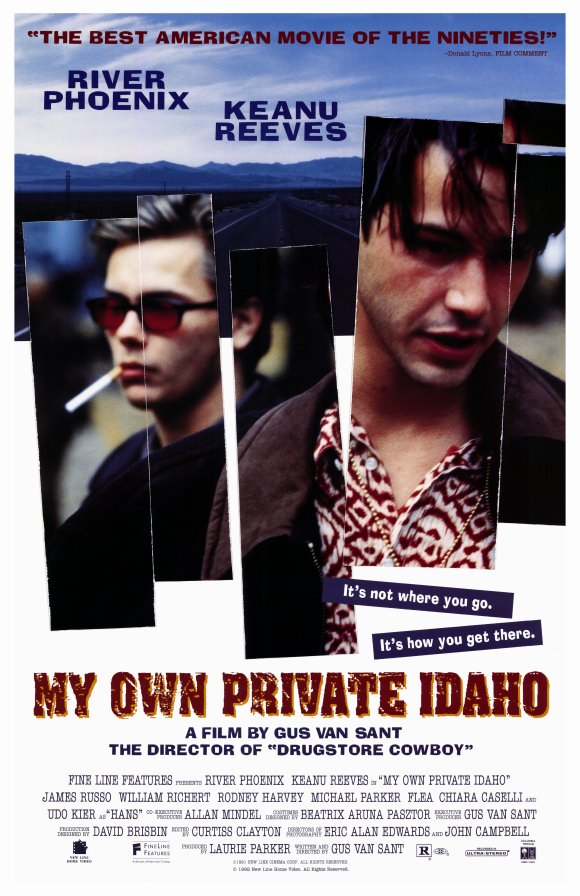
My Own Private Idaho (1991)
Description from The Advocate magazine's
The Top 175 Essential Films of All Time for LGBT Viewers:
My Own Private Idaho (1991): Gay director Gus Van Sant's meandering story follows River Phoenix, who plays Mike, a troubled gay street hustler, and his best friend (played by Keanu Reeves) from the streets of Portland to Seattle to Italy and Idaho. Along the way, the film explores love and loss, betrayal and the street life a lot of LGBT kids find themselves in. It's a bit of a gay Easy Rider and a must-see; poignant, emotional, frustrating, and don't expect a happy ending. -D.A.M.
Scott's Comments:
Loosely based on Shakespeare's Henry IV Part 2, Keanu Reeves even starts speaking Elizabethan English somewhere in the middle, straight out of the play. Then he and River Phoenix just pick up and go to Italy, forgetting about Shakespeare. I'm not even sure it's a gay picture. Weird, but worthwhile.
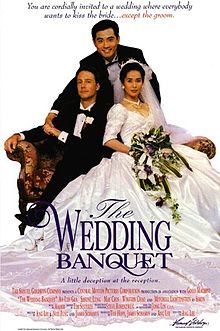
The Wedding Banquet (1993)
Description from The Advocate magazine's
The Top 175 Essential Films of All Time for LGBT Viewers:
The Wedding Banquet (1993): Before Brokeback Mountain, there was The Wedding Banquet, director Ang Lee's first film to deal with LGBT themes. Notable as the first film of Taiwanese origin to positively depict an interracial gay couple, The Wedding Banquet is a groundbreaking comedy of errors that centers on a Taiwanese-American who is afraid to come out to his traditional family. In order to placate his relatives, he hides his long-term relationship with a man and makes plans to marry a woman - a plot that, as in many real-life instances, fails miserably. A nominee for Best Foreign Film at the Golden Globes and the Academy Awards, The Wedding Banquet has withstood the test of time as a film that tackles the perennial and often thorny issues that come with the collision of love and family. -D.R.

Fire (1993)
Description from After Ellen's
Best Lesbian/Bi Movie Poll: Description from The Advocate magazine's
The Top 175 Essential Films of All Time for LGBT Viewers: Scott's Comments:
Wilde (1997) Scott's Comments:
Deepa Mehta's award-winning film about two Indian sisters-in-law living in traditional marriages who fall in love with each other sparked violent protests in India upon its release in 1996. Since then, some have argued that the film isn't necessarily about lesbianism as much as it is about female empowerment. Any way you interpret it, Fire is a powerful, moving film about two women trying to forge their own destinies beneath the weight of cultural tradition.
Fire (1996): Directed by Indo-Canadian filmmaker Deepa Mehta, Fire, one of the first major films to portray a romance between two women in India, stoked real-life flames upon its release in its country of origin in 1998. Hundreds of protestors stormed movie theaters across the South Asian nation, causing physical damage and driving away audiences. The protests forced many venues to end screenings. But critics around the world praised Fire for its courage in portraying the relationship between Radha (Shabana Azmi) and Sita (Nandita Das), who find refuge from their unhappy marriages and a repressive, male-dominated Indian culture in each other's arms. The film eventually opened in India without further incident, and its release sparked an international conversation about LGBT rights. -D.R.
If you rent the DVD, be sure to watch the additional mini-documentary in the Special Features section about how this movie was recieved in India.
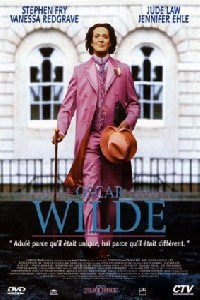
Spot-on BBC biopic about Oscar Wilde. It's hard to imagine better casting or acting than Steven Fry as Oscar Wilde and Jude Law as his "Bosie". As usual, the BBC gets all the details right. Absorbing throughout.
Out of the Closet - LGBTQ Portrayals in Movies After the Stonewall Riots (1969)
Osher Lifelong Learning
Institute
University of Illinois, Urbana-Champaign
Connie Hossier, Instructor
Scott Badman,
Instructor